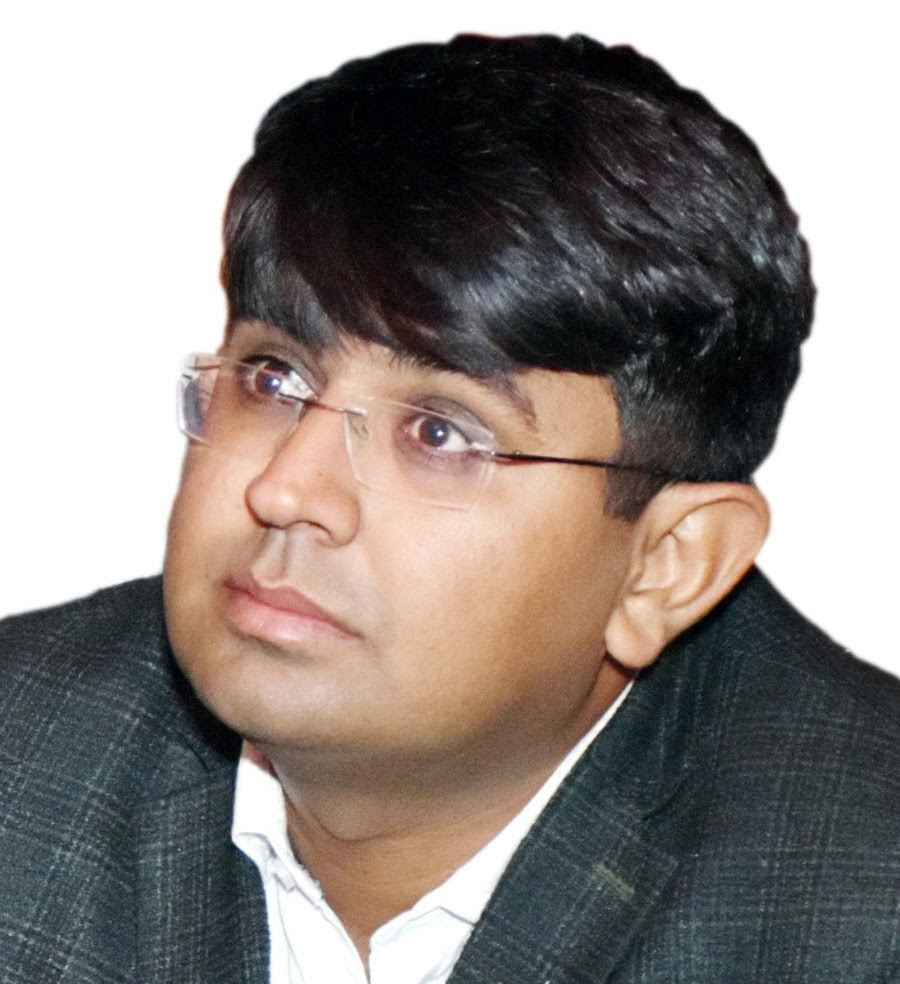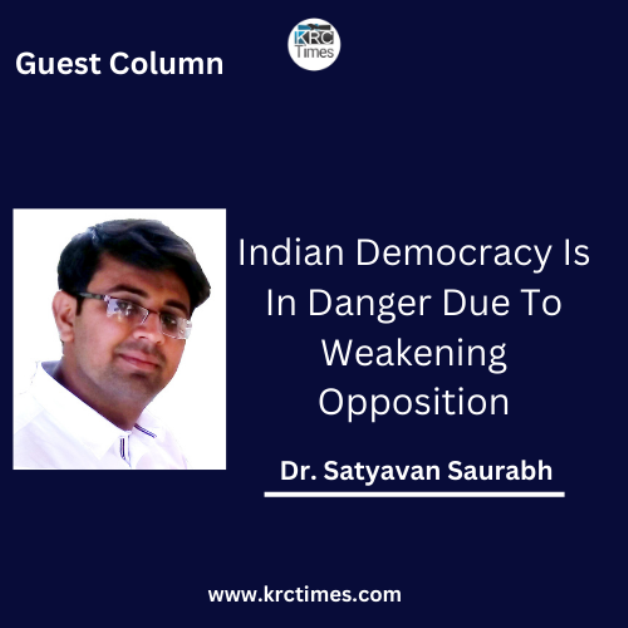A strong democracy requires strong opposition. We need to protect and protect the pillars of our democracy – legislature, executive, judiciary, and media
 Satywan Saurabh
Satywan Saurabh

The government should listen to criticism rather than dismiss it outright. Suggestions for dismantling democratic values require a thoughtful and respectful response. The press and the judiciary which are considered pillars of democracy need to be independent of any executive interference. A strong democracy requires strong opposition. Without an alternative, the very purpose of choosing to curb arbitrary power is defeated. Democratic values and principles are the core of India’s identity. We need to protect and protect the pillars of our democracy – legislature, executive, judiciary, and media.

India’s global image as a democracy is threatened by increasing attacks on the press and erosion of judicial autonomy. Democracy is taking a back seat around the world. Many democracies in the 21st century have been defying the principles of democracy. Principles such as freedom of the press and freedom of other public institutions of the state are frequently violated. For example, many world leaders such as Vladimir Putin (Russia), Recep Tayyip Erdogan (Turkey), and Trump (USA) launched a relentless attack on these institutions to retain power. Western educational institutions, Freedom House (US), and the Varieties of Democracy Project (Sweden) downgraded India’s democratic rating.
The first institutional check on sovereign power was provided through the Glorious Revolution in England. This led to the establishment of Parliament and England moved from absolute monarchy to constitutional monarchy.
Later, the French Revolution and the American Revolution assured its citizen’s inalienable rights. However, in the era of colonialism, the exclusion of women, as well as racial and religious minorities, continued until the 1950s. Democracy was strengthened after the 1950s by measures such as the institutionalization of universal suffrage elections, constitutional checks on the powers of the government, the right of judicial review to an independent judiciary, and the press empowered to investigate government actions.
Advertisement
Finally, after the end of the Cold War, due to the collapse of the Soviet Union, many authoritarian countries were forced to hold elections. This led to the establishment of liberal democracy rule in most countries of the world. Why was India’s democratic rating downgraded? Freedom House and the V-Dem multidimensional framework both attach great importance to the freedom of the press and the independence of the judiciary. Concerns about these undermining institutional checks and balances prompted both institutions to lower India’s score on their index. A weak democracy in India could negatively affect India’s ambitions to become a full member of the Quad or D-10. It will also undermine India’s claim to be a permanent member of the UN Security Council.
What then needs to be done? First, the government should listen to criticism rather than dismiss it outright. Suggestions for dismantling democratic values require a thoughtful and respectful response. Second, the press and the judiciary, which are considered pillars of democracy, need to be independent of any executive interference. Third, a strong democracy requires strong opposition. Without an alternative, the very purpose of choosing to curb arbitrary power is defeated. Democratic values and principles are the core of India’s identity. We need to protect and protect the pillars of our democracy – legislature, executive, judiciary, and media.
The faith and respect of the common man towards the four pillars of democracy have taken a serious hit in the last seven years. Destroying the edifice of democracy and social fabric in their rush to transform India into their image, without realizing that all of us too will be buried. Politicians are only concerned about the election, Babu is about posting the “right” and some judges are annoyed at being called “Your Honour” instead of “My Lord”. Today the common man has to realize that after all, he shapes the destiny of the nation. People choose the government they want but they get the government they deserve.
Advertisement
How should we assess whether we are witnessing the erosion of democratic practice in India – what political scientists call ‘democratic backsliding’? If India’s democracy is in danger, it shows that the central government has violated the basic principles of democracy. The institutions of the state, which should be fair to democratic political actors, have been used to serve the ruling party. The use of state institutions to weaken or suppress the opposition is in direct violation of these principles – a fundamental threat to democracy. Under the guise of Hindu nationalism, India has seen a rapid rise in undemocratic preferences among its population. This confluence of public opinion and a governing party willing to use the institutions of the state for its own sake has created the ghost of serious democratic backsliding in India.
(Dr Satyavan Saurabh, is a Poet, Independent Journalist, and Columnist, All India Radio and TV Panelist.The opinion expresses here are that of the author)
Advertisements | 5E For Success



